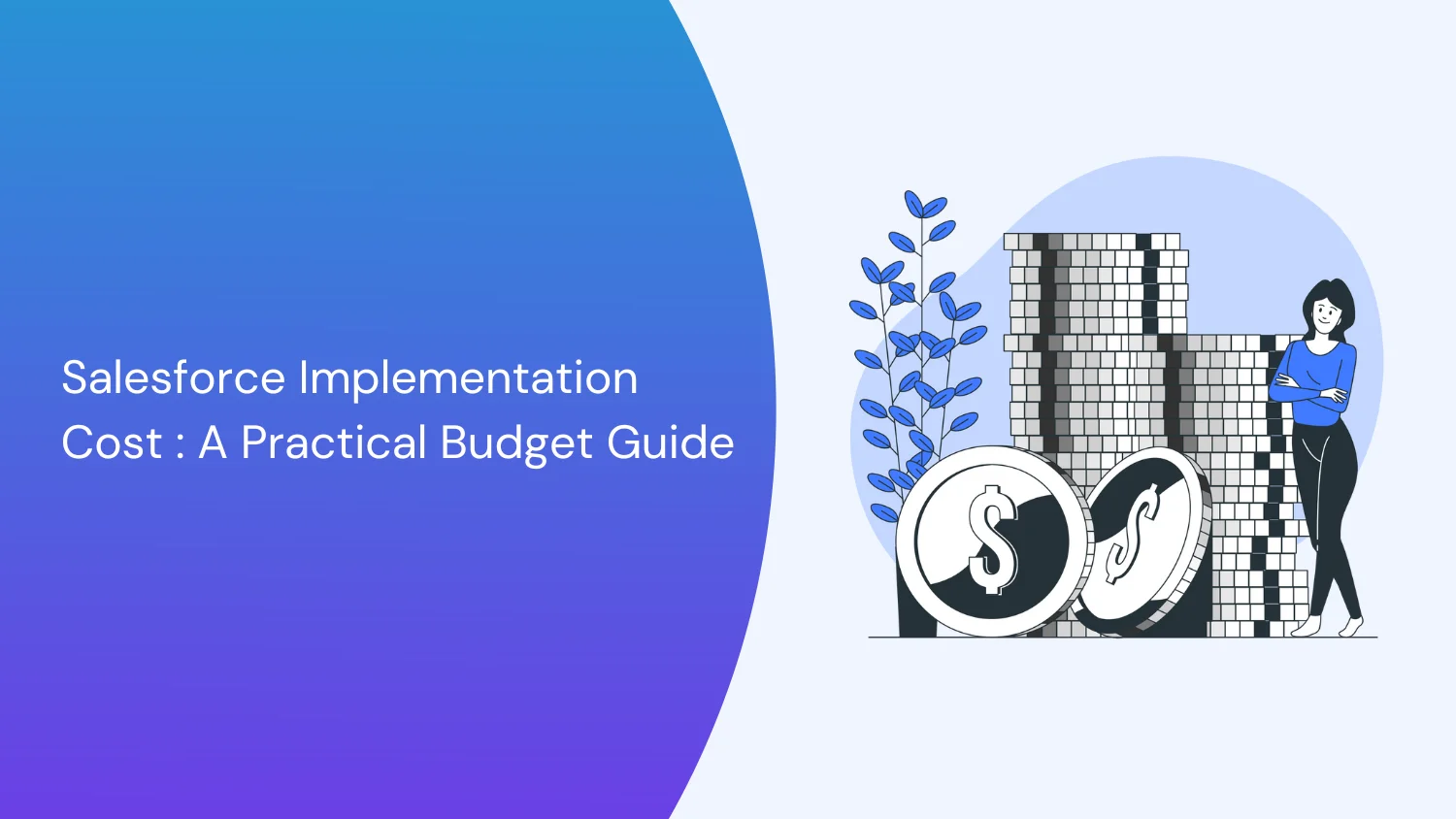What is Ops? Ops Meaning By Role
.avif)
“Ops” is a confusing term to many when you look at a business- there is a SalesOps analyst vouching for a new demo platform- a RevOps leader trying to phase out spreadsheets for commissions- etc. But what does Ops actually mean?
‘Ops’ stands for ‘Operations’ and in any vertical, it is the function responsible for ensuring efficiency, smooth functioning, and data visibility.
McKinsey research confirms that strong operations and IT excellence can result in up to 35% higher revenue growth and 10% higher profit margins for high-performing organizations
Still confused about what Ops people actually doe across industries and business functions? This guide to Ops or Operations cover everything you need to know in detail.
TL;DR
"Ops" is shorthand for operations. It refers to the teams and individuals who make sure processes, systems, and strategies run efficiently across functions like Sales, Marketing, Product, and Finance. From managing CRMs and campaign workflows to streamlining supply chains and production lines, Ops roles are essential to growth and profitability.
Why Is "Ops" So Important Today?
Over the last decade, "Ops" has become a fixture in job titles, hiring plans, and business strategies. But ask ten professionals what it means, and you’ll likely get ten different answers.
Operations is no longer confined to back-office functions or logistical tasks. Today, Ops roles are proactive, data-driven, and central to decision-making. They identify inefficiencies, automate repetitive work, and help scale processes across teams. Their main job is to ensure every activity is happening as efficiently as possible. And every team is enable with the best tech, tools, and time to get the job done.
This impact has led to a sharp rise in Ops-related job postings across industries- especially in SaaS and tech companies. Titles like Revenue Operations Manager (RevOps), Sales Operations Analyst (SalesOps), and Marketing Ops Lead now rank among the fastest-growing roles on platforms like LinkedIn.
So what exactly does "Ops" entail? To understand that, let’s break it down by function and industry.
What Does Ops Do in Sales, Marketing, Product, Finance, and IT?
%2520(1).avif)
What Is Sales Ops?
Sales Operations, or Sales Ops, is responsible for helping the sales team sell more effectively. It does this by optimizing tools, data, and processes.
Sales Ops professionals handle tasks like CRM management, territory planning, quota setting, pipeline reporting, sales forecasting, and incentive compensation design. By removing friction from the sales process, they allow reps to spend more time selling and less time on admin.
Plus- they ensure that tools are being adopted properly- and data is being represented accurately.
They also act as a bridge between Sales and other teams, especially Finance and RevOps, aligning strategy and execution.
Sales Ops - What do they do day-to-day?
- Manage and maintain the CRM (e.g., Salesforce), ensuring data accuracy
- Run sales performance reports and pipeline forecasts for leadership
- Support quota setting, territory planning, and team segmentation
- Coordinate commission calculations and payout processes

What Is Marketing Ops?
Marketing Operations supports campaign execution, lead generation, and marketing analytics. They manage systems like HubSpot, Marketo, and attribution tools.
Marketing Ops ensures that campaigns are launched on time, leads are properly routed, and performance is tracked against KPIs. They also maintain data integrity, build workflows, and often lead the tech procurement process for marketing teams.
The outcome: faster launches, better targeting, and more transparent funnel performance.
Marketing Ops - What do they do day-to-day?
- Set up, test, and launch email and digital marketing campaigns
- Manage lead scoring, routing, and integrations between tools like HubSpot and Salesforce
- Monitor campaign performance and generate attribution reports
- Maintain marketing automation workflows and fix data issues
What Is RevOps?
Revenue Operations (RevOps) is a more recent evolution. It combines Sales, Marketing, and Customer Success operations into a single function focused on revenue growth and efficiency.
RevOps owns the entire go-to-market infrastructure- from CRM and lead routing to forecasting and renewal processes. By eliminating silos between teams and making a more cohesive infrastructure focused on revenue, RevOps ensures that all customer-facing teams share the same data, systems, and goals.
It’s a function built for alignment and scale.
Revenue Ops- What do they do day-to-day?
- Align lead-to-cash processes across Sales, Marketing, and CS
- Build dashboards that track revenue metrics like ARR, CAC, and pipeline coverage
- Troubleshoot data syncs and system errors between platforms
- Lead cross-functional process improvements to eliminate friction
What Is Product Ops?
Product Operations bridges Product, Engineering, and go-to-market teams. They coordinate internal launches, manage analytics instrumentation, and ensure customer feedback is collected and prioritized.
Product Ops might oversee experimentation platforms, run customer beta programs, or support roadmap communication. Their work ensures the product team builds the right features and delivers value efficiently.
Product Ops- What do they do day-to-day?
- Collect product usage data and compile insights for PMs
- Coordinate go-to-market activities for new feature launches
- Organize feedback from sales, support, and users into structured reports
- Support experimentation and A/B testing setup with engineering
What Is Finance Ops?
Finance Operations supports budgeting, reporting, procurement, and compliance. In SaaS companies, they also manage subscription billing, revenue recognition (e.g. ASC 606 compliance), and tools like Anaplan or NetSuite.
Finance Ops often works closely with GTM Ops teams to ensure incentives are budget-aligned, commissions are processed on time, and revenue data is accurate and timely.
Finance Ops- What do they do day-to-day?
- Prepare budget vs. actuals reports and update forecast models
- Track SaaS metrics like burn rate, runway, and cash flow
- Support audit and compliance tasks, including ASC 606 documentation
- Process purchase approvals and manage vendor contracts
What is DevOps?
DevOps combines software development (Dev) and IT operations (Ops) into a single, integrated function focused on improving software delivery. DevOps teams automate infrastructure, streamline code deployments, and ensure system reliability. They manage tools like Jenkins, Kubernetes, and Terraform to maintain CI/CD pipelines and reduce downtime.
By bridging the gap between developers and IT, DevOps service providers enable faster releases, better incident response, and more scalable systems.
DevOps- What do they do day-to-day?
- Manage CI/CD pipelines to ensure fast, stable deployments
- Monitor system performance and respond to outages or alerts
- Automate infrastructure tasks using tools like Terraform or Ansible
- Collaborate with developers to optimize release workflows

What Does Ops Mean Across Industries
By now you know what many roles in Ops do with a SaaS view- now, let’s look at what Ops entails across industries In fact, "Ops" may look completely different depending on the industry.
What Is Retail Ops?
Retail Operations focuses on supply chain management, inventory control, store operations, and fulfillment logistics. Retail Ops professionals forecast demand, manage vendor relationships, track inventory levels, and ensure products reach shelves at the right time and quantity
In physical retail, they may also oversee POS systems, customer service workflows, and promotions.
How Does Ops Work in Healthcare?
Healthcare Ops teams are critical to the safe and effective delivery of patient care. They manage scheduling, staffing, compliance, and equipment procurement. They also ensure compliance with healthcare regulations like HIPAA, coordinate patient data systems, and optimize capacity planning.
With rising costs and staff shortages, efficient operations are essential for healthcare providers to maintain care quality.
What Is Manufacturing Ops?
In manufacturing, Operations ensures production lines run smoothly, costs stay in check, and quality standards are met.
Responsibilities include production planning, inventory tracking, equipment maintenance, vendor sourcing, and safety compliance. In highly regulated industries, Manufacturing Ops also supports audits and traceability.
Efficiency gains here often translate directly into higher margins and faster delivery.
What Is Ops in SaaS and Technology?
In tech companies, Ops roles are often more systems-oriented.
SaaS Ops: Manages SaaS subscriptions, onboarding/offboarding workflows, software access, and compliance.
DevOps: Coordinates between developers and IT to automate deployments, maintain uptime, and improve release cycles.
IT Ops: Oversees internal tech infrastructure, help desk support, and hardware/software provisioning.
These roles are essential for companies operating in cloud environments or handling large volumes of tools and data.
.avif)
What Are the Most Common Ops Job Titles?
"Ops" can appear in dozens of job titles, each with a different focus. Here are some of the most common ones:
- Operations Manager: Oversees cross-functional processes, collaboration and internal systems
- Sales Operations Analyst: Manages CRM workflows, pipeline reporting, and rep enablement
- Revenue Operations Manager: Aligns Sales, Marketing, and CS processes
- Marketing Operations Specialist: Runs campaigns, tools, and reporting for marketing teams
- DevOps Engineer: Automates infrastructure and software deployment pipelines
- Product Operations Manager: Supports roadmap delivery, product launches, and customer feedback loops
- People Ops Lead: Focuses on employee experience, HR automation, and performance management.
The key similarity across these titles: each role exists to improve how work gets done.
What Tools Do Ops Teams Use?
Modern Ops teams rely on a wide range of tools to support their function. Here are examples, organized by function:
Sales & RevOps
- HubSpot, Salesforce: Customer Relationship Management
- Visdum: Commission tracking and automation
- Clari: Revenue forecasting and pipeline health
Marketing Ops
- Marketo, HubSpot, Segment: Campaign automation and lead tracking
- Chili Piper: Meeting scheduling and lead routing
- Google Analytics: Web and funnel attribution
Product & SaaS Ops
- Mixpanel, Amplitude: Product usage analytics
- Productboard: Roadmapping and prioritization
- BetterCloud, Torii: SaaS access and license governance
DevOps & IT
- Jenkins, Kubernetes, Terraform: Infrastructure as code and deployment automation
- Datadog, New Relic: System monitoring and alerting
The right tools reduce manual work, create transparency, and scale operations across teams.
Why Are Ops Roles So Critical in 2025?
Operations exist as a role to synergize the efficiency of the company as a whole. As companies face pressure to scale with fewer resources, Ops is becoming non-negotiable investment.
Operations professionals help:
- Increase execution speed by reducing bottlenecks
- Improve cost control through automation and efficiency
- Enhance accountability by aligning data and reporting
In 2025, the most effective companies won’t just sell better- they’ll operate smarter. That’s where Ops comes in.
From onboarding new tools to refining revenue models, Ops teams are at the center of company performance.
FAQs About Ops
What’s the difference between RevOps and Sales Ops?
Sales Ops is focused on optimizing the sales team’s performance. RevOps unifies Sales, Marketing, and Customer Success to improve revenue processes end-to-end.
Are Ops roles technical?
Some are. DevOps and SaaS Ops require technical skills. Others, like Finance Ops or Product Ops, are more analytical and process-driven.
Should startups invest in Ops early?
Yes. Early-stage Ops support helps prevent chaos later and sets up scalable systems from the start.
Is Ops the same as project management?
No. Ops roles are ongoing and focused on improving systems. Project management is task-oriented with defined timelines.
Where do Ops professionals grow in their careers?
Many move into leadership roles or GM positions because they understand how the entire business operates.
Final Take: Why Understanding "Ops Meaning" Matters
"Ops" isn’t just a buzzword. It’s a function that underpins every part of how a business runs.
From Sales Ops enabling reps, to RevOps driving revenue visibility, to DevOps releasing product updates, operations roles keep organizations moving efficiently and profitably.
If you want to work smarter, scale faster, or grow revenue predictably, investing in your operations team isn’t optional- it’s foundational.


.webp)


